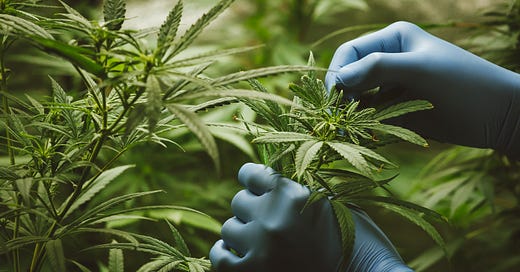The Weed Wars of 2022
Competing factions in the fractured legal pot industry angle for advantage
When Washington voters legalized recreational marijuana a decade ago, they were looking to get high without fear of the Man, or perhaps to end the shameful and destructive legacy of sending people to prison for using or selling weed.
They probably didn’t figure they were creating an industry that would develop deeply divided internal factions. They likely didn’t envision one of those factions aggressively trying to overhaul the agency that regulates the industry. And they can’t possibly have imagined a debate over cutting-edge processing techniques that includes the phrase “lab-grown frankenweed.”
But those dramas played out last week in two entertainingly contentious hearings in front of the Senate Labor, Commerce & Tribal Affairs Committee,
Here’s why you should care about this: Washingtonians spend more than $100 million a month1 on weed, according to the Washington Liquor and Cannabis Board’s data. 2012’s Initiative 502 created a heavily regulated and heavily taxed three-tiered system of producers, processors, and retailers, with strict oversight from the board.
The closed nature of the system — only Washington residents can own weed businesses here, and new licenses are severely restricted — means that many of the 1,850 businesses currently in the system have licenses to print money2 — provided the system remains somewhat stable.
But forces both from within Washington and from without could disturb that balance, and could render some of those licenses worth far less than they are now, while further enriching others.
Keep reading with a 7-day free trial
Subscribe to The Washington Observer to keep reading this post and get 7 days of free access to the full post archives.



